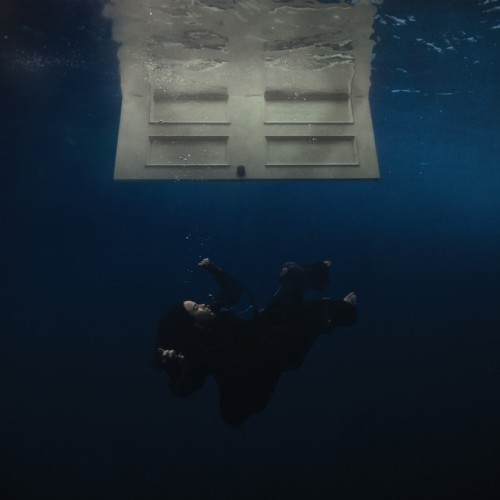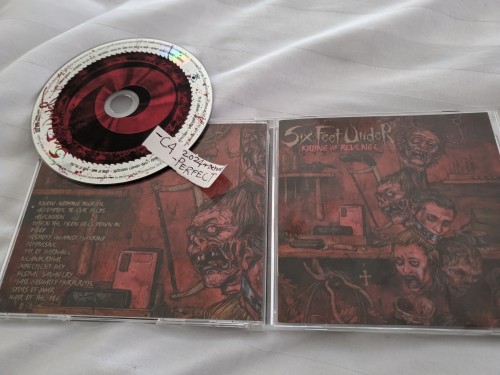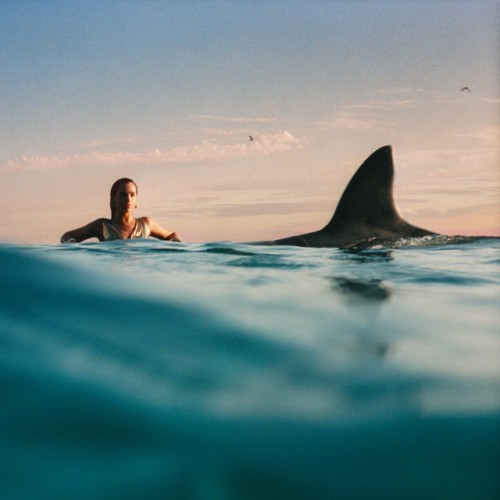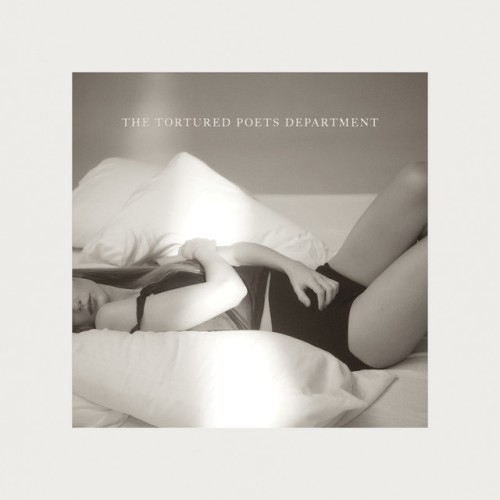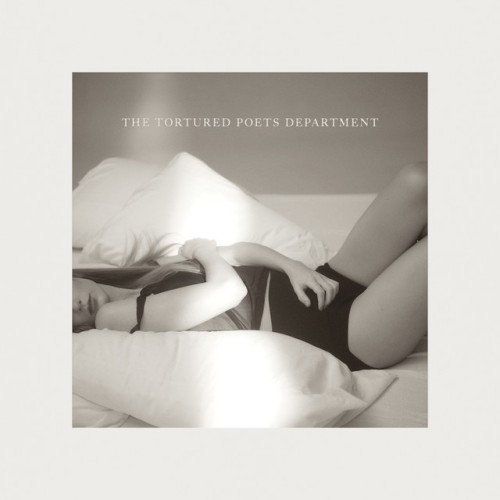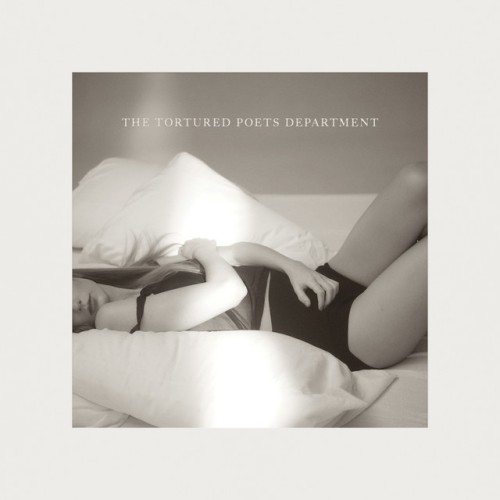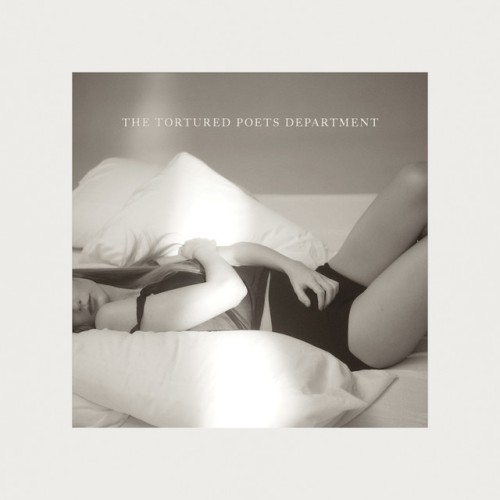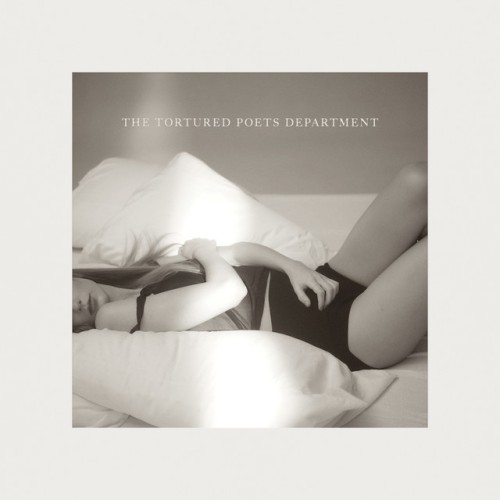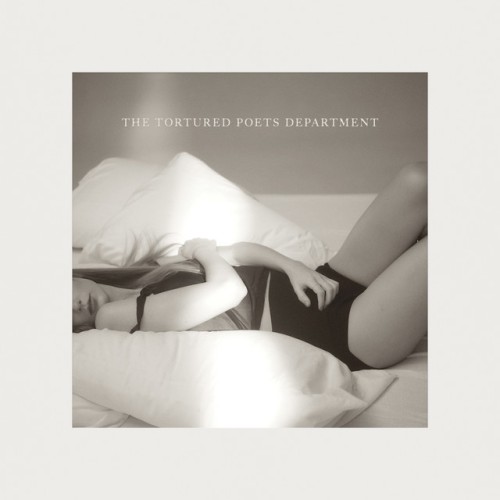
Ane Brun – Songs 2013 – 2023 (2023)
FLAC (tracks) 24 bit/44,1 kHz | Time – 01:17:39 minutes | 820 MB | Genre: Indie Pop, Indie Folk, Art Pop, Female Vocal
Studio Masters, Official Digital Download | Front Cover | © Universal Music AB
It’s ten years since Ane Brun marked her first decade as a recording artist with the release of Songs 2003-13, a career-encapsulating double album. Now, with her international reputation flourishing, Songs 2013-23 allows the distinguished, platinum-selling Norwegian singer songwriter to celebrate her second decade in the business – not to mention her multiple Norwegian and Swedish Grammy awards – while also illustrating the ongoing, fascinating evolution of her singular, compelling talent.
Read more
Anders Aarum Trio – Oslo Puzzle (2023)
FLAC (tracks) 24 bit/44,1 kHz | Time – 46:57 minutes | 459 MB | Genre: Jazz
Studio Masters, Official Digital Download | Front Cover | © Ozella
After 15 years of waiting: Audio portraits of Oslo’s tragic-heroes by Norway’s least Nordic piano trio.The idea for the album came to Aarum after reading “Oslo originals” – a book about the fascinating residents from the Norwegian capital’s history. Each track on the album, he decided, would paint a portrait of one of these personalities. Take “El Jucan”, a tribute to Einar Olsen, who walked the streets as a fakir, swallowed swords, flames and glass and lay on a bed of nails. In an inspiring twist of serendipity, the recording studio happened to be in the immediate vicinity of a mental hospital. This set the mood perfectly, as many of the personalities captured on the album battled with alcoholism and deteriorating psychological health. The entire album, the first one by the current line-up of the trio after 15 years, was recorded in a single 1,5 hour short session. Thanks to this impressive achievement, the Anders Aarum trio are now originals as well. They, too, have now become part of the Oslo puzzle.
Read more
Alessandro Simonetto (Pianist, Harpsichordist) – The Music of Erik Satie (2023)
FLAC (tracks) 24 bit/88,2 kHz | Time – 01:14:58 minutes | 1,08 GB | Genre: Classical
Studio Masters, Official Digital Download | Front Cover | © OnClassical
A versatile musician and music producer. Alessandro’s preference for board instruments was clear when as a child he began to play as a self-taught pianist. He also started composing at a very early age. At 14 y.o. he wrote a cycle of Mazurkas inspired by Chopin.
He deepened aspects of jazz composition and silent-film music, and became a close friend with Eric James, the associate composer of Sir Charles Chaplin, until his death. In 2000, a few minutes before his performance, James put a paper on the grand piano, and in front of the audience wrote: nist of immense talent and will surely make his mark on the musical profession […].
Read more
Aero Quartet – Aero Quartet (2023)
FLAC (tracks) 24 bit/44,1 kHz | Time – 01:00:30 minutes | 528 MB | Genre: Classical
Studio Masters, Official Digital Download | Front Cover | © Orchid Classics
The Aero Saxophone Quartet brings its trademark versatility and variety to their debut album, which embraces music from Glazunov to John Coltrane. Praised by Augusta Read Thomas for their ‘nuanced, colourful, and artfully sculpted’ performances, the award-winning Aero Quartet was formed in 2020 and has quickly established a reputation for wide-ranging programmes. This album spans classical and jazz, profound and light-hearted. Alongside Glazunov’s richly innovative music, we hear the evocative Danzón No. 5 (Portales de Madrugada) by Mexican composer Arturo Márquez, the playful Wapango by Cuban-American legend Paquito D’Rivera, and Ed Calle’s sultry Iberia Suite. There are thought-provoking works from Carlos Simon, whose Elegy (A Cry from the Grave) pays powerful tribute to Trayvon Martin, Eric Garner and Michael Brown, and from Guillermo Lago, whose Sarajevo (Bosnia and Herzegovina) is dedicated to his many friends there. The release culminates in Coltrane’s Dear Lord, a mellow yet joyful affirmation of life.
Read more
The Bell Strings – The Return of The Magnificent Seven and Other Great Western Movie Themes (1966/2016)
FLAC (tracks) 24 bit/192 kHz | Time – 36:52 minutes | 1,20 GB | Genre: Folk
Studio Masters, Official Digital Download | Front Cover | © Bell
The Return of The Magnificent Seven and Other Great Western Movie Themes
Read more
Christian Tetzlaff, Nikolai Lugansky, Russian National Orchestra, Kent Nagano – Tchaikovsky: Violin Concerto; Piano Concerto (2003)
DSF Stereo DSD64/2.82 MHz | Time – 01:07:48 minutes | 2,67 GB | Genre: Classical
Studio Masters, Official Digital Download | Digital Bookelt, Front Cover | © PentaTone
Only a few works from Peter Ilich Tchaikovsky’s huge oeuvre have gained general acceptance; however, these are of such an enduring nature that the Russian is ranked among the great com- posers in the history of music. The way the world of music highlights especially his last three symphonies, his Piano Concerto No. 1, his opera Eugen Onegin and his Rococo Variations is nothing less than extraordinary.
Tchaikovsky’s life alternated between tragedy and happiness. He was born on May 7, 1840 in Kamsko-Votkinsk, and received his first piano lessons from his mother at the tender age of five. Even as a child, he was prone to psychosomatic attacks and depressions, which he attempted to combat by composing brilliant pieces on the piano. His parents established the family home in St. Petersburg in 1852, after moving house a number of times. During the following 10 years, Tchaikovsky read law, found employ- ment as a civil servant, travelled throughout Europe as an interpreter and, on the whole, led a carefree and joyous life. He was only sporadically interested in music: his sole artistic activities consisted of evenings spent at the opera or at concerts, and irregular piano lessons.
Read more
Orchestra of the Bolshoi Theatre Moscow, Alexander Vedernikov – Tchaikovsky: The Nutcracker (2006)
DSF Stereo DSD64/2.82 MHz | Time – 01:44:24 minutes | 4,14 GB | Genre: Classical
Studio Masters, Official Digital Download | Digital Bookelt, Front Cover | © PentaTone
During a journey through Italy in 1882, Peter Tchaikovsky received a parcel in the post from a friend containing a book with the fairy tale Nutcracker and the Mouse King. This was, however, in the French adaptation Histoire d’un casse-noi- sette, which AlexandreDumas senior had published in 1844. The original by the German author E.T.A. Hoffmann was published at Christmastime in 1816, and was included at the time in the collection Die Serapionsbrder. A contemporary review stated that the text was hardly a fairy tale, “but the rogue only takes on the mask of the child, in order to make fun of decent people by means of words and ges- tures in an even more amusing man- ner”. This story depicts “a complete world with all its fantastic objects, the way this presents itself to the fearful, innocent and yet greedy soul of a child (of the girl Marie of noble birth) in a delightful dream”: i.e. as a battle of the good (the dolls and toys) against the evil (the mice in the girl’s bedroom) in a fantastic Kingdom of Sweets, to which Marie is transport- ed through mysterious doors by the Nutcracker, her Christmas present.
Read more
Czech Philharmonic Choir of Brno, Budapest Festival Orchestra, Ivan Fischer – Tchaikovsky: Symphony No. 6 ‘Pathetique’ (2016)
SF Stereo DSD64/2.82MHz | Time – 58:02 minutes | 2,31 GB | Genre: Classical
Studio Masters, Official Digital Download – Source: nativeDSDmusic | Digital Booklet | © Channel Classics Records B.V.B.V.
When Pyotr Il’yich Tchaikovsky stepped onto the stage in Saint Petersburg on 28 October 1893 to introduce his Sixth Symphony to the public, he was received with a roar of applause. Less than an hour later the astonished audience was left dumbfounded. How could a symphony begin so softly and end even softer? And what about the second movement, with its undanceable waltz, and the third one with its unstoppable march? Nine days after the premiere, Tchaikovsky died in a city ravaged by cholera. Tchaikovsky himself considered the symphony to be the best he had ever written, and with it he said farewell to music, indeed to life itself. Rumours have never ceased to circulate about this unexpected end. For example, according to a controversial theory of the Russian musicologist Alexandra Orlova, the composer was forced to commit suicide. A secret council of honour is said to have sentenced Tchaikovsky thus because of a scandalous relationship with his young nephew; that he was reported to have died of cholera was no more than a pretence to conceal the true course of events. This theory has since been refuted. When the composer drunk a glass of unboiled water in the company of his brother Modest and nephew Vladimir Davidov, who warned him of the dangers, he replied “I am not afraid of cholera.” Did he know what he was doing? Is this the import of the dark, deathly sound of the menacing bassoons at the beginning of the symphony? Was the Pathétique indeed his message of farewell? And especially the final movement, Adagio, with its downward pull, in which all that holds on to life is swallowed up as if by a morass? Depressions overshadowed not only Tchaikovsky’s final years, but much of his life as well. Among the reasons for this was his homosexuality. In his younger years he was very nearly driven to suicide by an unhappy marriage, which was dissolved on medical advice. In his last symphony, the tragedy of the composer’s life seems to be captured in music.
Read more
Russian National Orchestra, Mikhail Pletnev – Tchaikovsky: Symphony No. 3 (2012)
DSF Stereo DSD64/2.82MHz | Time – 52:06 minutes | 2,06 GB | Genre: Classical
Studio Masters, Official Digital Download – Source: nativeDSDmusic | Digital Booklet | © Pentatone Music B.V.
Nowadays, Tchaikovsky’s first three sym- phonies seldom appear on the concert programmes, whereas his symphonies four to six – in other words, the symphonies generally recognized as masterpieces – are regularly included. And thus the three early symphonies share a fate that none of them have necessarily earned. After all, each in its own individual way is a worthwhile symphony: the composer certainly did not consider them to be preliminary works, a type of precursor to the later symphonies. From 1866 to 1878, Tchaikovsky taught harmony at the Moscow Conservatoire and during this period, he composed – among other works – his first three symphonies, namely in 1866, 1872, and 1875. And for Tchaikovsky, the journey leading to the symphony was not an easy one: on the con- trary, he trod a painful path before tapping into this high-end genre. This is proven, on the one hand, by the amount of time and energy he put into the creation of his sym- phonies, which was characterized by serious doubts about their quality; or, on the other hand, by the fundamental reworking of his second symphony, despite the success of its première. However, Tchaikovsky had a much easier time with his Symphony No. 3 in D.
Read more
Russian National Orchestra, Mikhail Pletnev – Tchaikovsky: Symphony No. 2 ‘Little Russian’ (2012)
DSF Stereo DSD64/2.82MHz | Time – 48:10 minutes | 1,9 GB | Genre: Classical
Studio Masters, Official Digital Download – Source: nativeDSDmusic | Digital Booklet | © Pentatone Music B.V.
Following the long and rocky road to the First Symphony, on which, due to his teaching duties at the Moscow Conservatory, Tchaikovsky had been forced to work at night, the Second Symphony was composed mainly in the summer of 1872, hot on the heels of his second opera, The Oprichnik. At this time, Tchaikovsky was once again tak- ing a holiday on the country estate of his sister Aleksandra, located near the Ukrainian town of Kamianka, in the Kiev Governerate. Numerous anecdotes report Tchaikovsky’s touching assertion that he was not the true creator of the work, but rather, that it actually had been composed by one Pyotr Gerasimovich, one of the older servants in the household of his sister and her husband, Lev Davydov, for it was Pyotr Gerasimovich who had sung the folksong, The Crane, to him, which provided the basis for the work’s finale. Regardless of the story’s veracity, there is no other work in Tchaikovsky’s symphonic oeuvre that contains such a wealth of authentic folksong themes beside freely composed folksong-like creations. The work’s unofficial title, Little Russian Symphony, is indeed attributable to the fact that so many Ukrainian folksongs are employed in it, ‘Little Russia’ having been the standard term for the central and northern portions of today’s Ukraine in Tsarist times.
Read more
Russian National Orchestra, Mikhail Pletnev – Tchaikovsky: Symphony No. 1 ‘Winter Daydreams’ (2011)
DSF Stereo DSD64/2.82MHz | Time – 55:16 minutes | 2,18 GB | Genre: Classical
Studio Masters, Official Digital Download – Source: nativeDSDmusic | Digital Booklet | © Pentatone Music B.V.
The genre of the symphony played a major role throughout the creative life of Pyotr Tchaikovsky. He composed his first symphony at the age of 26, and his sixth and last symphony – the Pathétique – in 1893, the year in which he died. Whereas his three last symphonies have remained an integral part of the concert repertoire, performances of his first three symphonies are still quite rare. Unfairly so, as they are unique indi- vidual works, artistic expressions of a high quality. Tchaikovsky defined the symphony as “the most lyrical of musical forms. After all, is it not meant to express that for which there are no words, but which forces itself out of the soul, impatiently waiting to be uttered?”. With these words, Tchaikovsky makes us aware of the special nature of his symphonies. Primarily, they provided him with a musical outlet for the elaboration of his emotions, his mental and spiritual pro- cesses. Probably the greatest error as far as the reception of Tchaikovsky’s symphonies is concerned, is that the subjectivity of his symphonic sound world, the sweet melliflu- ousness of one melody or another confused and irritated the judgment of the academics to the same degree in which these musical characteristics met, by contrast, with euphoric approval from a wide-ranging audience. After all, especially in German- speaking countries, his music was unjustly stamped as follows: “Beware! Sensitive, sloppy sentiment!”. But Tchaikovsky absolutely did not want to get involved in an academic game with empty notes. And rightly so.
Read more
London Symphony Orchestra, Valery Gergiev – Tchaikovsky: Symphonies Nos. 1-3 (2012)
DSF Stereo DSD64/2.82MHz | Time – 02:05:56 minutes | 4,97 GB | Genre: Classical
Studio Masters, Official Digital Download – Source: nativeDSDmusic | Digital Booklet | © LSO
Tchaikovsky was well into his twenties when he abandoned an unpromising career as a civil servant in the Russian Ministry of Justice and began to study music seriously, at first privately and then at the newly-established St Petersburg Conservatory. Immediately after graduating, he was offered a teaching post at the even newer Moscow Conservatory, and it was during his early months there that he composed the First Symphony. Its birth was accompanied by the anxiety and self-doubt that Tchaikovsky was never to overcome, even as a mature and established master.
Read more
Russian National Orchestra, Mikhail Pletnev – Tchaikovsky: Manfred Symphony (2013)
DSF Stereo DSD64, 1 bit/2,82 MHz | Time – 59:28 minutes | 2,35 GB | Genre: Classical
Studio Masters, Official Digital Download – Source: nativeDSDmusic | Booklet, Front Cover | © Pentatone Music B.V.
Peter Ilyich Tchaikovsky’s Manfred is a hermaphrodite – at least, as far as the music is concerned. For although the work (dating from 1885) was indeed dubbed by its creator as a symphony, it still did not receive a number alongside Tchaikovsky’s further six contributions to the category. And thus it was – and has still to some extent remained – “draped” over a stool, as it were: isolated in Tchaikovsky’s oeuvre somewhere between the categories of the symphony and the symphonic poem. Nevertheless, Manfred is definitely based on a literary programme. And what a programme – the eponymous dramatic poem written by the “dark romantic” poet, Lord Byron. Tchaikovsky devoted himself to this and to its eponymous hero with zeal, and seemed to even somewhat transform himself into Manfred during the intensive period of work. After all, he was also suffering from inner torment. And this can be heard in the music, which appears to be full of inner conflict. Nowadays, Manfred is rarely heard in the concert hall. Perhaps due to its rather “overloaded” subject? Perhaps due to its unclear stylistic positioning? Or perhaps due to the model upon which it is based, which today is virtually unknown? Towards the end, during the redemption of Manfred, there is even an organ added to the full orchestra. (Incidentally, this was recorded separately in Berlin for the recording at hand.) An apotheosis – however, the “taste” involved here is a subject worthy of debate. And this may, in fact, be the reason…
Read more
Mari & Momo Kodama – Tchaikovsky: Ballet Suites For Piano Duo (2016)
DSF Stereo DSD64/2.82MHz | Time – 01:03:15 minutes | 2,51 GB | Genre: Classical
Studio Masters, Official Digital Download – Source: nativeDSDmusic | Booklet, Front Cover | © Pentatone Music B.V.
Together for the first time in the recording studio, the sisters Mari and Momo Kodama are on scintillating form in these lively arrangements of music from Tchaikovsky’s ballets Swan Lake, Sleeping Beauty and Nutcracker. In another first, the release contains the first ever recording of Arensky’s transcription of the timeless Nutcracker together with notable arrangements by Debussy and Rachmaninov.
Conceived on a grand scale, Tchaikovsky’s colourful, often passionate scores for the ballets Swan Lake, Sleeping Beauty and Nutcracker abound with graceful melodies, arresting harmonies and exuberant orchestration. The music has proved enduringly popular with audiences and rates among his most familiar and best-loved works. Composers such as Arensky, Debussy and Rachmaninov made arrangements of these works for piano, not mere reductions but wholesale realisations of the works, combining subtlety and insight with their own technical polish.
Read more
Tamas Vasary, Berlin Philarmonic Orchestra, Janos Kulka – Chopin: Piano Concerto No.2 (1963/2015)
DSD128 (.dsf) 1 bit/5,6 MHz | Time – 51:26 minutes | 4,06 GB
FLAC (tracks) 24-bit/96 kHz | Time – 51:26 minutes | 954 MB
Studio Master, Official Digital Download | Artwork: Digital booklet | Source: HDTT | Genre: Classical
From the poet of the piano, Frederic Chopin, comes a compilation of some of his most memorable moments – both for solo piano and for piano with orchestra. Here is Frédéric Chopin’s Concerto For Piano And Orchestra No. 2 In F Minor, Op. 21; Andante Spianato & Grande Polonaise, Op. 22 & Grand Polonaise Nocturne In C Sharp Minor, Op. Posth. Tamás Vásáry plays piano. Berliner Philharmoniker (Berlin Philharmonic Orchestra) conducted by Janos Kulka. A superb performance, recorded in 1963 at Jesus-Christus-Kirche, Berlin.
Read more




![King Crimson - Larks’ Tongues in Aspic (40th Anniversary Edition) (1973/2023) [High Fidelity Pure Audio Blu-Ray Disc]](https://imghd.xyz/images/2024/05/12/138741_front.md.jpg)
